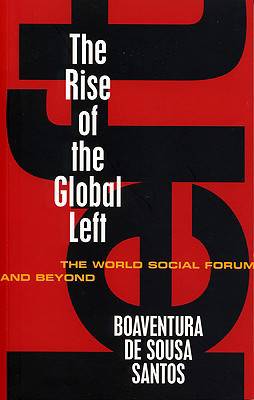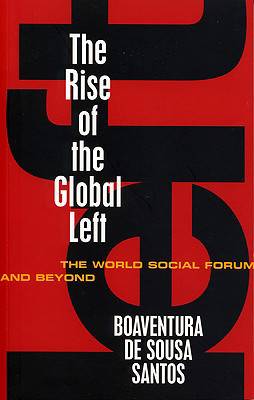
- Afhalen na 1 uur in een winkel met voorraad
- Gratis thuislevering in België vanaf € 30
- Ruim aanbod met 7 miljoen producten
- Afhalen na 1 uur in een winkel met voorraad
- Gratis thuislevering in België vanaf € 30
- Ruim aanbod met 7 miljoen producten
Zoeken
The Rise of the Global Left
The World Social Forum and Beyond
Boaventura De Sousa Santos
Paperback | Engels
€ 72,95
+ 145 punten
Uitvoering
Omschrijving
Leading sociologist Boaventura de Sousa Santos makes an impassioned case for the politicisation of the World Social Forum, arguing that its full potential as a force for social, economic and political change can be achieved only by taking a stand against neo-liberal globalization, war, famine and corruption. However, since its inception in Porto Alegre in 2001, the World Social Forum has refused to adopt political positions on world events, preferring instead to provide a platform that facilitates cooperation between diverse social movements.
Through a detailed analysis of the WSF's history and organization, he demonstrates that it has always been an inherently political organization, and argues that if the WSF is able to realise its potential as an institution for a new form of politics, it will become a global power to be reckoned with in the 21st century.Specificaties
Betrokkenen
- Auteur(s):
- Uitgeverij:
Inhoud
- Aantal bladzijden:
- 240
- Taal:
- Engels
Eigenschappen
- Productcode (EAN):
- 9781842778012
- Verschijningsdatum:
- 1/12/2006
- Uitvoering:
- Paperback
- Formaat:
- Trade paperback (VS)
- Afmetingen:
- 162 mm x 215 mm
- Gewicht:
- 303 g

Alleen bij Standaard Boekhandel
+ 145 punten op je klantenkaart van Standaard Boekhandel
Beoordelingen
We publiceren alleen reviews die voldoen aan de voorwaarden voor reviews. Bekijk onze voorwaarden voor reviews.







